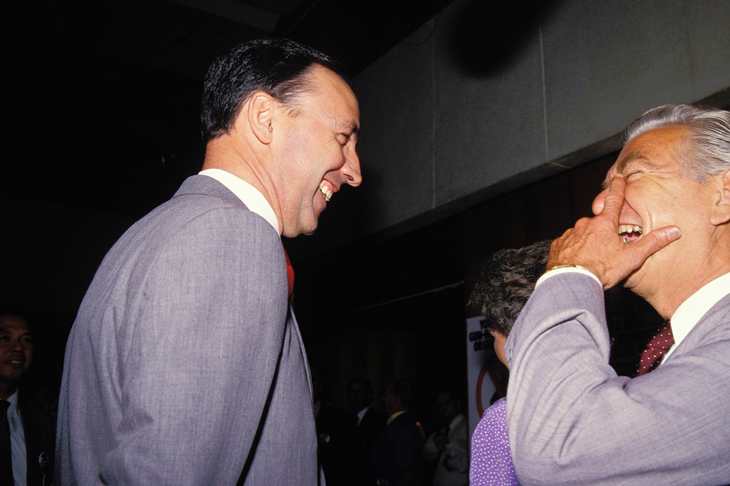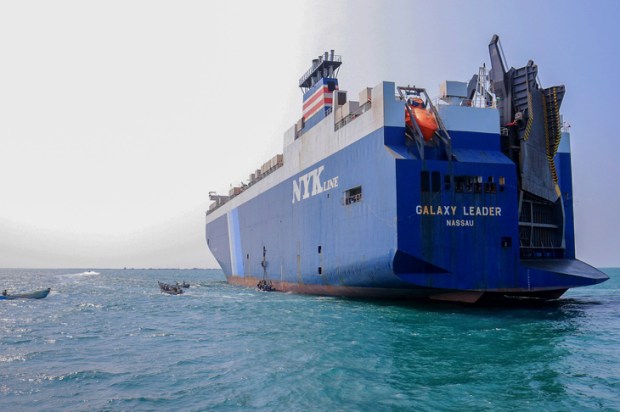In an interview with Company Director, the Australian Institute of Company Directors’ magazine, Dr Don Russell, chair of AustralianSuper, says, ‘Being able to influence companies in their decisions around board governance, climate risk and disclosures, are all mechanisms we see as improving investment returns.’
‘We’re heavily engaged in that because we think it lowers the risk associated with everything we’re invested in.’
Well, with 2.5 million accounts, a quarter of a trillion dollars under management and $650 million a month in new contributions, no one can doubt this fund has clout. Nor that much of that clout, whatever the investment returns, comes from increasing payments from the same companies Dr Russell seeks to influence. Having started at three per cent of workers’ salaries, these are soon to rise to twelve per cent.
As a principal adviser to former prime minister Paul Keating, Dr Russell helped design the compulsory scheme. No doubt he and Mr Keating knew what an enduring gift it would be to their friends in the trade union movement. And what a gift it has proven to be!
In three decades it has enabled a handful of unions and employer associations, with no capital backing, to account for around 30 per cent of Australia’s $3.1 trillion superannuation assets, earning some $30 billion a year in fees. This firepower has greatly leveraged organised labour’s capacity to influence boardrooms through shareholder activism.
Unions also benefit from sponsorships and advertising deals which aim to encourage workers to join their funds. According to the Financial Services Royal Commission, while not itemised, these inducements totalled more than $30 million in the five years to 2019. Unions are also believed to receive fees of around $14 million a year, paid nominally to its appointed directors.
Former union apparatchik and current federal assistant treasurer, Stephen Jones, ignores calls for improvements in reporting standards. He believes annual aggregate disclosures of political donations and, payments to trade unions and industry bodies is sufficient.
Unsurprisingly, the cosy relationship between industry funds, trade unions and government, leads to suspicions of personal indulgences and cover-ups. No matter the truth, this cartel exerts an unhealthy influence on capital allocations.
And while union nominees on fund boards have responsibility for a substantial slice of workers’ life savings, they remain relatively unknown. After all, workers see superannuation contributions as a tax paying for something they will receive in the remote future and this detachment means fund executives on multimillion-dollar salaries and performance bonuses are rarely held to account.
The absence of transparency and accountability seems inconsistent with many of the ESG governance principles espoused by Dr Russell. Nevertheless, this doesn’t preclude AustralianSuper from closely monitoring external managers to ensure they adhere to its strict protocols. Indeed, rather than exert indirect control, AustralianSuper has already brought management of half its assets in-house.
Dr Russell believes this strict ESG approach enhances the equity portfolio’s performance. ‘We’ve built concentrated portfolios and developed skills and capabilities to understand a whole range of Australian businesses,’ he says, ‘Part of that understanding is based around an understanding of how these companies deal with climate risk and other ESG matters.’
On climate, AustralianSuper is committed across its portfolio to net-zero emissions by 2050. But what does this mean? According to consultancy McKinsey, ‘trillions of dollars need to be spent every year for almost three decades to hit net zero targets’. Is AustralianSuper’s commitment open-ended? Has it considered the long-tail risks to its members’ savings from constant capital misallocation? Have AustralianSuper and its likeminded peers forgotten the old Wall Street adage, ‘When all the experts and forecasts agree – something else is going to happen’?
Already, too many alarmist climate predictions, advertised as based on authoritative modelling, have proven false. It is surely only a matter of time before the public weighs the crippling economic and social costs of environmental policies against environmental progress. Retirees will begin to question who gave the mandate for superannuation assets to be so heavily weighted in essentially moral crusades. What about eggs and baskets and a case for compensation?
By inserting themselves into boardrooms, industry funds and their friends in government have blurred the line between management and ownership. They are getting in the way of what Milton Friedman argued was the ‘one and, only one, social responsibility of business, to use its resources and engage in activities designed to increase its profits so long as it… engages in open and free competition without deception or fraud’.
Despite Dr Russell’s claims of inherent ESG out-performance, several studies have questioned any causal link, saying it can be explained by other factors. For example, technology and asset-light companies are often among broader market leaders in ESG ratings because they have a relatively low carbon footprint. These tend to merit higher ESG scores and, through weight of buying, initially achieve a self-fulfilling out-performance. But, as the director of one fund declared, ‘There is no ESG alpha,’ or, sustained outsize market return.
Nevertheless, Dr Russell and many of his powerful peers, insist on micro-managing the companies they invest in. The boards in turn obey, spending valuable board and management time on unproductive navel gazing and redirecting investments into ‘safe’ assets. Innovation is shunned.
Strikingly, net zero 2050 and, ESG more generally, seem to be peculiarly Western preoccupations. China is not so obsessed. Rather, it is massively boosting coal production to keep electricity supplies reliable, prices low and manufactured products internationally competitive. Chinese leaders remain clear-eyed and are thoroughly practised in the art of climate-change arbitrage. BMW’s decision to move manufacture of Minis to China highlights Beijing’s wisdom.
This is not to argue against prudent governance. But it is to warn that a cartel, comprised of big government, ideologically driven investors and obedient businesses, is concentrating risk based on what may yet prove to be a popular delusion. Future retirees would have good reason to feel betrayed.
Got something to add? Join the discussion and comment below.
Get 10 issues for just $10
Subscribe to The Spectator Australia today for the next 10 magazine issues, plus full online access, for just $10.
You might disagree with half of it, but you’ll enjoy reading all of it. Try your first month for free, then just $2 a week for the remainder of your first year.














Comments
Don't miss out
Join the conversation with other Spectator Australia readers. Subscribe to leave a comment.
SUBSCRIBEAlready a subscriber? Log in